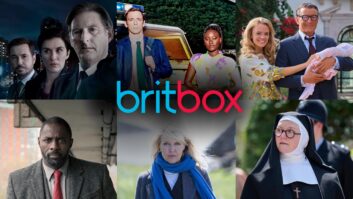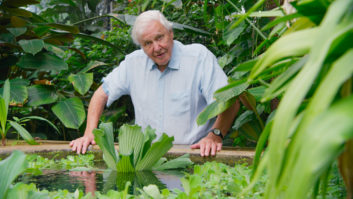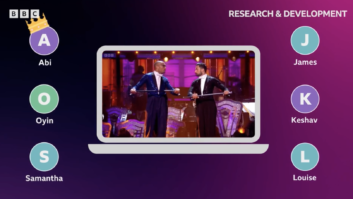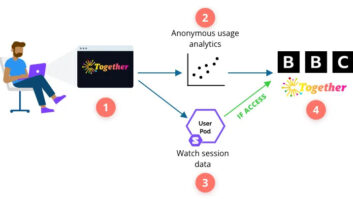
The BBC Trust has launched its second public consultation on the BBC Executive’s proposals to move BBC Three from a broadcast to an online-only channel, launch a +1 channel for BBC One, make changes to BBC iPlayer, and extend the hours of CBBC.
In June, the Trust published its provisional conclusions, giving approval to the BBC Three, iPlayer and CBBC plans and rejecting the BBC One +1 proposal.
The consultation which opened yesterday will run until 30 September and seeks views from the public and stakeholders on these provisional conclusions. Proposed amendments for the BBC licenses affected by the changes have also been published.
In its provisional conclusions in June the Trust also proposed three conditions in relation to the BBC Three proposal, designed to address concerns about the short-term impact of the change on younger audiences and the potential impact on the BBC’s ability to try out new ideas and develop new talent. The proposed conditions included clearer commitments to programmes on BBC One and/or BBC Two that appeal to a younger audience, including the use of those channels to continue broadcasting long-form BBC Three programmes, and a commitment to a space on broadcast television (not just on BBC Three online) where risks can be taken with new talent ideas.
The BBC Executive has released a statement, which stated that the Trust’s provisional approval of three out of the four changes would enable the broadcaster to ‘deliver its strategic objectives – to make the most creative and distinctive output, to improve value for money, to serve all audiences and to innovate online.’
It concluded that moving BBC Three online represented ‘an important step towards allowing the BBC to innovate with new ideas and new forms of content for younger audiences.’ The content will focus on ‘comedy, personality-led entertainment, drama, factual, documentaries and current affairs’, with content available across the BBC’s services: on a branded space on bbc.co.uk, on programme pages on BBC Online, BBC iPlayer, BBC One and BBC Two, and on the Connected Red Button.
As for the transition of the channel, the Executive approved a ‘broad based phased transition based on closure of BBC Three as a broadcast channel in January 2016 and using the vacated distribution capacity for a promotional transitional channel to run alongside BBC Three Online until the end of February 2016.’
The BBC Trust recently published service budgets of £54.8 million for BBC Three as a TV channel from April 2015 to January 2016 and £14.1 million for the online offer for 2015/16, assuming BBC Three Online launches in January next year.
The BBC Executive’s statement also asserted that the changes to iPlayer would results in its evolution from a predominantly catch-up service to one which includes more online-first and online-only content. Many of these online premieres, it is suggested, will be children’s programmes commissioned by CBBC and CBeebies.
Proposals to include selected third party content in iPlayer were welcomed by Ofcom, as the body ‘recognised the role that cultural partnerships can play by enabling fresh thinking and the development of new ideas, and sharing some of the skills and experience of the broadcaster’. The BBC has already partnered with cultural and other organisations such as the Arts Council England and the Tate Gallery and has included S4C programmes in BBC iPlayer on a trial basis since December last year.
The Executive expressed disappointment that the Trust rejected proposals to launch a BBC One+1 service, as audience research had shown strong support for such a service. It would have provided, the Exectutive said, a cost-effective way for homes without broadband or access to BBC iPlayer or PVR to catch up on content, and helped to mitigate some of the short-term impact of BBC Three’s closure.
BBC Trust chairman Rona Fairhead commented: “Our provisional conclusions sought to ensure that the BBC’s services remain distinctive, innovative and relevant to all its audiences, while working within ever tighter funding constraints. Over the next few weeks, we’ll gather more views about the BBC’s proposals and the mitigations we’ve put forward to address concerns raised. We will carefully consider the responses and all of the evidence before making our final decision.”
Pictured: BBC Three’s The Totally Senseless Gameshow







